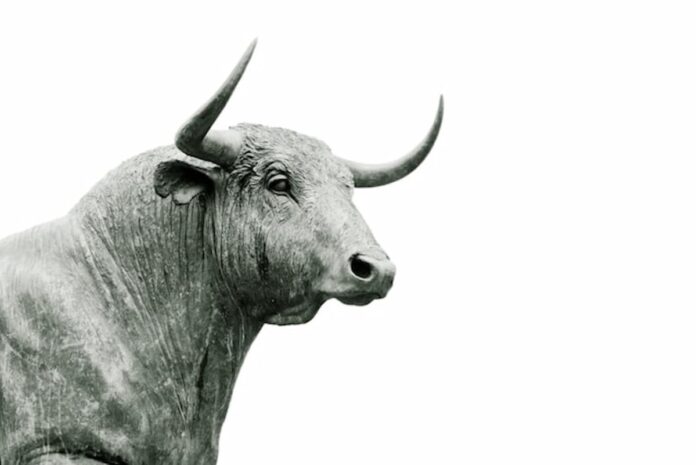
Last week saw mixed outcomes for gaming stocks, with the S&P 500 Index closing marginally lower amid concerns over the Middle East conflict.
The Federal Reserve also expectedly maintained its pause on rate cuts, but Chair Jerome Powell’s commentary following last week’s Federal Open Market Committee meeting was seen as somewhat hawkish.
Nonetheless, the Roundhill Sports Betting & iGaming ETF, which is the world’s largest gambling ETF, closed marginally higher for the week.
Esports Entertainment Group Bounces Back After Difficult Week
After being the biggest loser in the preceding week with a 16.7% drop, Esports Entertainment Group was the top gainer among gaming stocks, gaining 8.5% over the past week. Some analysts attribute the gain to the fear of missing out among buyers, given the substantial drop that preceded it.
While the stock is up for the year, it trades approximately 68% below the 52-week high. Last year, the company voluntarily delisted from the Nasdaq and now trades on the OTC market. It also ceased publicly reporting its earnings, so we don’t get its updated financials.
The company is in severe financial distress amid perennial losses and burgeoning debt, which is making markets wary about the company’s ability to stay afloat.
Century Casino Continues Fightback
With a gain of 15.5%, Century Casinos was another notable winner among leading gaming stocks last week, continuing its strong performance recently. The stock had risen by 10.5% in the preceding week and has now bridged its YTD losses to just under 25%.
One factor contributing to the positive results last week was the company’s announcement that, starting July 19, Magique, an acclaimed attraction and show, will take center stage in the resort’s Celebrity Showroom.
While there weren’t any other market-moving announcements last week, recent bullish analyst commentary, including that from Bank of America, Deutsche Bank, and Stifel, suggests the stock is undervalued.
Earlier this month, Stifel stated that it expects the shares to rise to $4. Century Casinos’ mean target price is $5, which is about double its current trading price.
DraftKings Leads The Best of the Rest
With a 7% growth, DraftKings was the third-largest gainer last week amid continued optimism over the 50-cent surcharge the company would implement on all bets in Illinois, effective September 1.
Analysts see the announcement as a means to preserve margins and management’s willingness to defend profitability. Jeffreys maintains a “buy” outlook with a $60 price target, about 50% higher than the current price.
Meanwhile, JP Morgan updated its target to $50 per share, representing about a 25% increase. Still, JP Morgan maintains a “mixed” outlook, based on the uncertainty around tax increases in states like Illinois, Louisiana, and Maryland.
Robinhood stock gained 6.3% last week, and while there was no news related to its prediction business, a strong set of numbers for May and expectations of higher trading volumes amid market volatility helped propel the stock higher.
Golden Entertainment stock gained 5.4% last week. The company boasts an attractive dividend yield of 3.5%. It is focused on deleveraging its balance sheet through the sale of non-core assets, allowing the company to focus on its operations in Nevada primarily.
Bally’s Corporation gained 4.3% last week, bouncing back from the 5.2% loss the previous week. The positive result is directly attributed to BetMGM’s announcement of an improved 2025 financial forecast, which lifted much of the industry.
Still, Bally’s stock remains down over 46% for the year, placing it among the worst-performing names in the industry. The company has a substantial debt pile, with net long-term debt of $3.4 billion as of March 31. For context, Bally’s market cap is under $500 million.
Which Gambling Stocks Underperformed Last Week?
Unlike Esports Entertainment Group and Bally’s, which bounced back from a bad week, Genius Sports had the opposite fortune and became the top loser last week with a drawdown of 8.2%.
The stock was among the biggest gainers in the preceding week after it expanded its partnership with the NFL, which will ensure that it remains the league’s exclusive distributor of official data feeds and watch-and-bet services until the end of the 2029 season.
Last week’s price action was more likely a profit-booking exercise amid jitters in the broader markets on geopolitical tensions.
The number two spot went to Huya, whose stock lost 7.3% last week after a steep sell-off on Friday, amid selling in select Chinese shares.
These results were directly affected by Daiwa America downgrading Huya from a “strong buy” to a “hold” rating on Tuesday. On the same day, Daiwa Capital Markets downgraded Huya from an “outperform” rating to a “neutral” rating.
Playtika stock fell nearly 6% on Friday, partly due to the ex-dividend date, prompting many holders to sell ahead of the expected decline in stock price that typically accompanies ex-dividend events. The dividend of 10 cents per share will be paid out on July 7.
Corsair Gaming rounded the top losers last week, falling 4.3%. Despite last week’s losses, the stock is up over 36% for the year and is outperforming the broader markets.
The recent losses appear to be more of a profit-booking exercise, as the stock had risen sharply in the previous few weeks after strong Q1 results.
Other Key Gaming Industry Developments
Last week was quite eventful for gaming stocks, with a broad-based rally on Monday following BetMGM’s announcement of raising its full-year guidance.
It stated that the positive momentum of Q1 has continued into Q2, and the company is witnessing strong growth across both the iGaming and Online Sports businesses.
BetMGM has raised its full-year revenue guidance, now expecting net revenues to be at least $2.6 billion, up from the previous guidance of $2.4 billion to $2.5 billion.
It now expects its EBITDA to be at least $100 million, compared to its earlier guidance of reaching positive EBITDA this year.
MGM stock rose 8% on Monday, which was its most significant single-day gain since April. However, the stock was unable to retain these gains and ended the week only 1.9% higher amid broader market turbulence.
The other key gaming industry development was Penn Entertainment’s annual shareholder meeting on Tuesday. As expected, Johnny Hartnett and Carlos Ruisanchez, who activist investor HG Vora backed, were nominated as the company’s directors.
While the stock was trading slightly down in early trading on Wednesday, it eventually closed 4% higher that day on optimism that the new directors would push for steps to enhance shareholder value.
In addition to the bet surcharge announcement in Illinois, another significant move by DraftKings was the launch of a Political Action Committee (PAC), becoming the first sports betting operator to do so.
Through its PAC, the company says it will enhance the customer experience. However, the PAC will also increase DraftKings’ political influence amid factors like tax increases, antitrust concerns, and legislative scrutiny.










